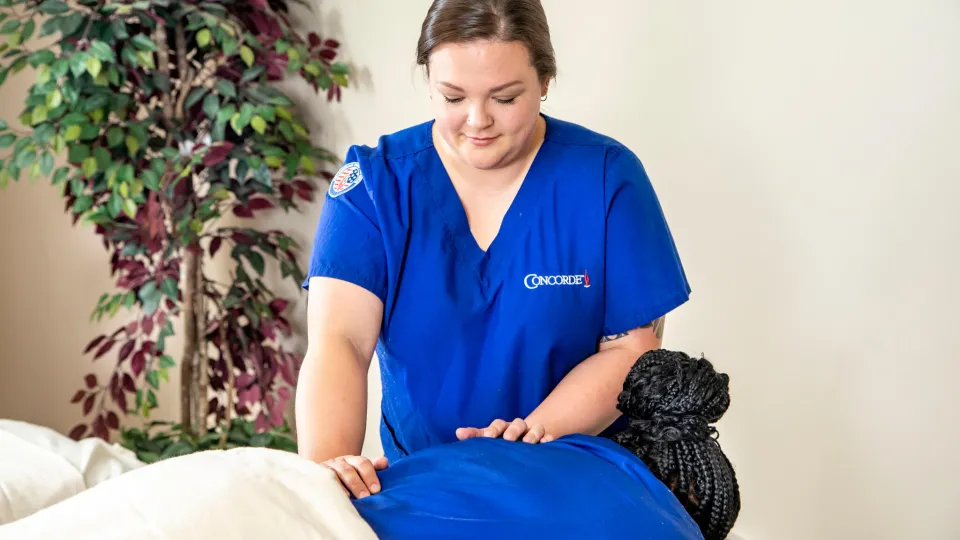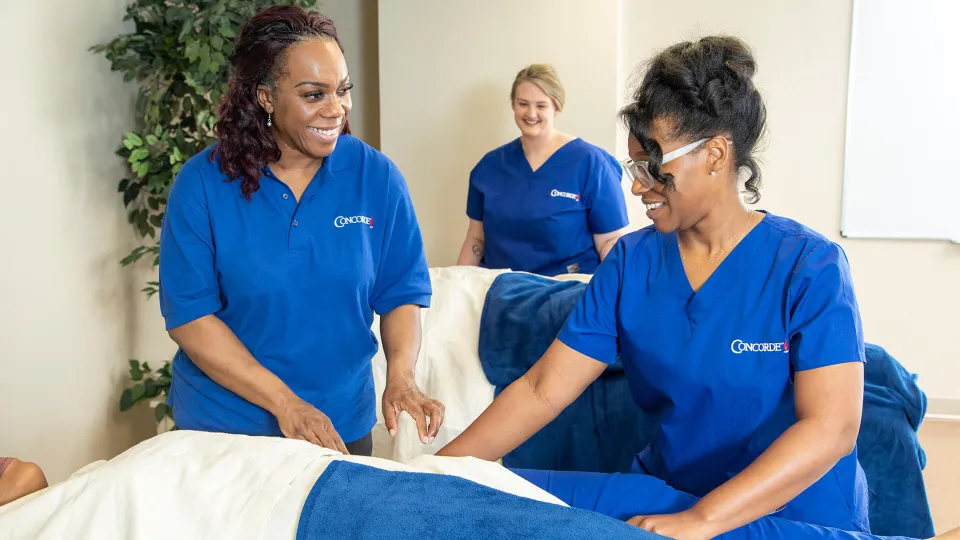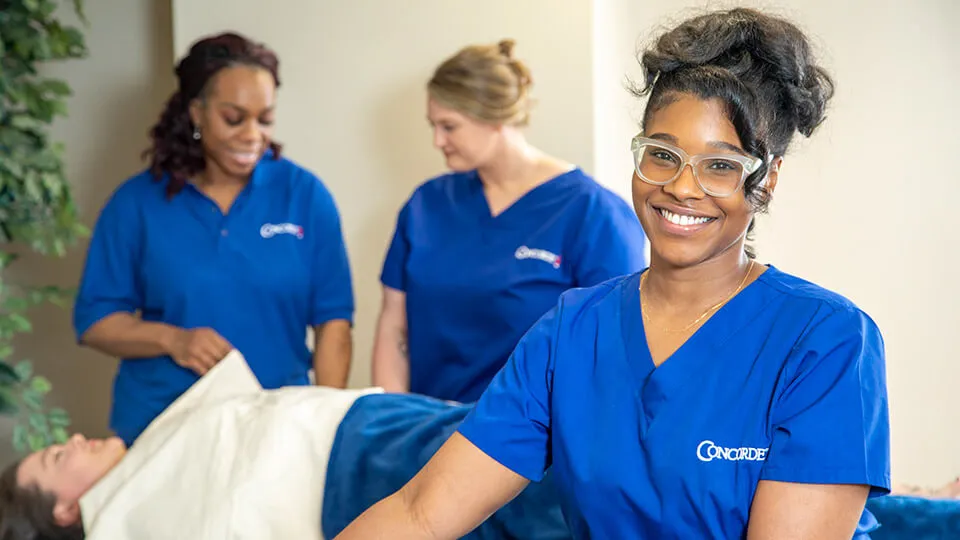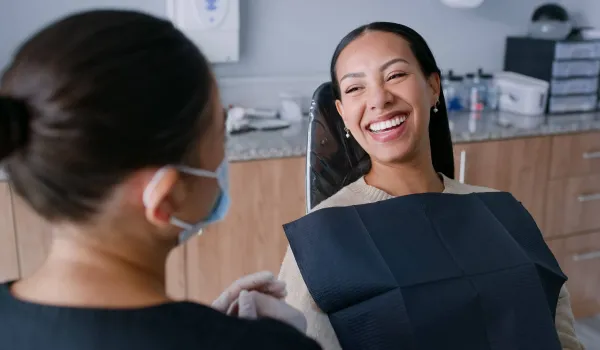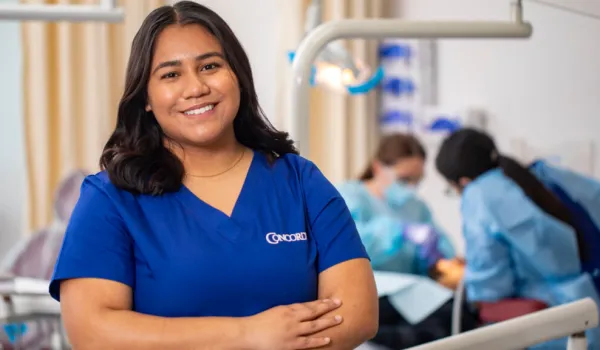
A little over 10 years ago, there were two basic types of Massage Therapy. Swedish massage used light-to-medium pressure for relaxation with the goal of working at a day spa or cruise ship. Deep tissue massage was medium-to-deep pressure to really work the kinks out with the goal to work with a sports team.
Sandy Fritz, the author of Mosby's Fundamentals of Massage and Essential Sciences, the gold standard for teaching Massage Therapy, suggested last year that massage had changed from being for relaxation to clients wanting results right now.
Massage therapy for fascia
Robin Blaisdell, Instructor of Concorde's Massage Therapy program in Southaven, MS, said she's seen definite signs of the changing times.
"In Mississippi and Tennessee, we're required to have 24-25 hours of continuing education to keep our licenses active," she said. "Most of the classes I took were for myofascial release. Fascia is a connective layer of tissue that surrounds our muscles and organs. It can get tight and dehydrated through repetitive use or injury.
"I've incorporated fascia work into all of the massages I do."
Emerging techniques in Massage Therapy
Blaisdell points out that text books today reference many people that took a technique, put a spin on it and made it their own. Ida Rolf was the first to incorporate fascia work through Rolfing in the 1940s. John Barnes took that work, made a few changes, and called it Myofascial Release. Erik Dalton calls his technique Myoskeletal Alignment. Magnus Eklund teaches Synergetic Myofascial Techniques.
"I've had (Myofascial Release) treatments done," Blaisdell said. "They're intense, for sure, but I always felt better. I've only had (Myoskeletel Alignment) done to me once, but I reference his techniques to our students and show videos of him in action. I'm 25 hours into Eklund's 200-hour certification program, and I can't wait to be certified. I've seen his techniques bloom over the years. I've taken four of his classes, and I walk away excited every time.
"The main point of fascia work is that people see results right away, but it's actually easier for a therapist to do than a standard massage. You're working on much deeper tissue... but you're applying minimal pressure and waiting for the tissue to respond to your touch. Of course, this isn't right for everyone. Some professionals don't have time to spend 10 minutes on one body part waiting for the fascia to release."
If you're having difficulty keeping up to date on where the field of Massage Therapy is going, Blaisdell suggests checking out social media, where there are a lot of experts like Fritz chiming in constantly on the changing times and techniques. Of course, good Massage Therapy schools like Concorde will keep students current through ever-evolving curricula.
Take The Next Step Towards a Brighter Future
Interested in learning more about our Massage Therapy program?
We have a Concorde representative ready to talk about what matters most to you. Get answers about start dates, curriculum, financial aid, scholarships and more!

